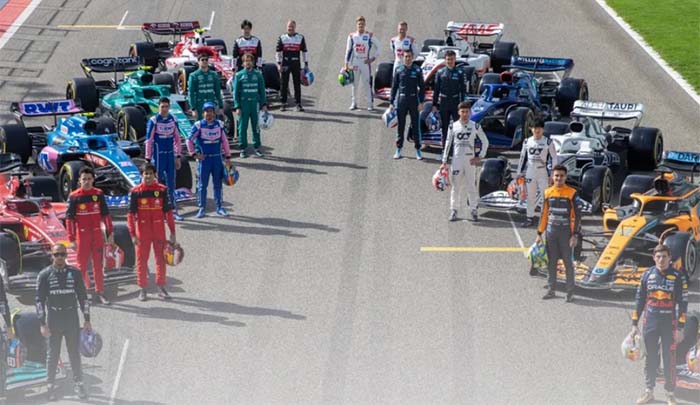A long and thorough study shows that neither the car nor the driver themselves are the most important factors for success in Formula One.

A long and thorough study shows that neither the car nor the driver themselves are the most important factors for success in Formula One.
The study was conducted over eight seasons and released yesterday after this weekend's exciting British Grand Prix. It surprisingly found that the answer is not as much to do with the car as you might expect.
"There is a long-standing belief, the so-called '80-20 rule' in F1, that the car/team is responsible for 80 percent of success, while the skill of the driver is responsible for only 20 percent," explains the study's lead author, Duane Rockerbie of the University of Lethbridge, whose results were published in the journal .
"What we found, however, is that the contribution of the car was greatly overestimated. Instead of 80%, it's closer to 20%. The contribution of the driver in just driving the car accounts for about 15%, which is almost equal to that of the car."
"The determining factor really is the interaction between driver and team, which accounts for 30-40% of success. Random factors that occur during races make up the rest."
"Our findings are particularly valid for the drivers, as they show that they not only drive the cars, but also provide extremely valuable information and feedback on the development of the cars. More skilled drivers improve the feedback the team gets from their team technology and vice versa. And this becomes a virtuous circle. F1 cars do not drive themselves, and drivers cannot ply their trade without an F1 car. The 80-20 rule greatly underestimates the role of the driver, given the critical complementarity between driver and team."
The findings were released by Rockerbie and coauthor Stephen Easton, professor of economics at Simon Fraser University. They used statistical modeling and data from the 2012 to 2019 F1 seasons to determine the final positions.
They are able to compare, season by season, the variation in driver skill with the team's spending on the car. From the data evaluated, their results show that 2012 was the season most dependent on driver skill for a race win: 16.7% - "perhaps due to rule changes that emphasized greater driving skill and strategy on the track."
The experts are also able to demonstrate the enormous amount of funding needed, on average, to improve a team's performance on the track.
"A team that finishes, on average, in P10 every race would need to spend an additional $164.6 million to consistently finish in P9. This would require an increase in driver salary (average $7.86 million per season) and team budget (average $195.86 million)," Rockerbie says.
"The required expenditures vary each season, largely due to differences in average team budgets and driver salaries."
"The amount also varies with the existing team budget and driver salary due to the non-linearity of the relationship between spending and final standings," he notes.
Overall, the experts' result suggests that while teams that spend more on their budgets and driver salaries improve their ratings, it is not that simple.
"The return to hiring more driving skill (with a supposedly higher driver salary) is positive, in terms of returning better positions, but it decreases the size of the team's budget," says Professor Easton. "The return on spending more on the team budget is positive for race arrivals, but decreases in the size of the driver's salary. The team with the largest overall budget outlay, therefore, is probably in the best position to win each season because it can afford not to decrease car performance in exchange for a high-quality driver."
"This finding is supported by evidence: drivers who move on to teams with superior cars and greater support, or who manage to start their F1 career with these teams, achieve superior results and possibly world championships."